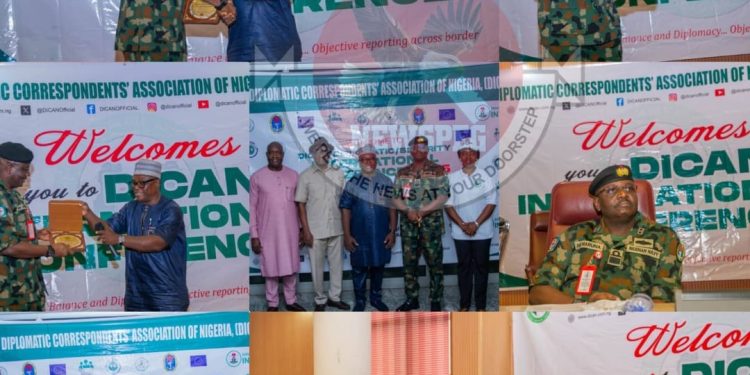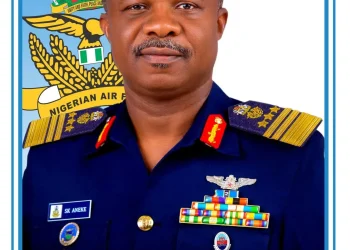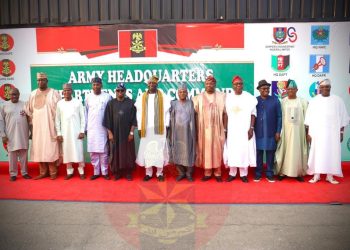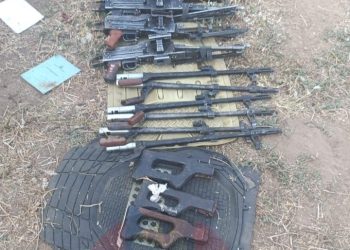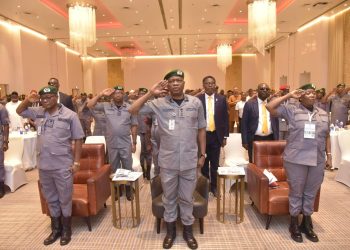By Nkechi Eze
Nigeria’s Chief of Defence Staff (CDS), General Christopher Gwabin Musa, has called for greater synergy between the Armed Forces and the media as a strategic necessity in the ongoing fight against disinformation, misinformation, and their wider implications for national security. Speaking through his representative, Rear Admiral A.M. Haruna, the CDS delivered this message during the inaugural Diplomatic and Security International Conference hosted by the Diplomatic Correspondents Association of Nigeria (DICAN), held in Abuja.
The event, which brought together a broad spectrum of stakeholders including diplomats, security experts, academics, and journalists, focused on the theme “Diplomacy, Security, and the Media in a Changing World Order.” In his remarks, General Musa underscored the rising complexity of security challenges in an age where hybrid warfare has blurred the lines between traditional combat, digital influence operations, and psychological manipulation through media channels.
“Disinformation is not just a media problem, it is a national security threat,” the CDS warned. “It can erode public trust, destabilise communities, and empower criminal elements. In a time when information spreads faster than bullets, the consequences of unchecked falsehoods can be just as devastating as physical attacks.”
General Musa emphasised that the military recognises the pivotal role of the media in shaping public perception, influencing policy direction, and fostering national unity. He called for a collaborative front to counter the growing trend of fake news and misleading narratives, particularly in regions affected by insurgency, transborder crime, and communal conflicts.
“We are calling on the Nigerian media to partner with us, not just to report the facts, but to verify them. Journalists and editors must become gatekeepers of truth, especially when reporting from conflict zones,” he stated, reiterating the Armed Forces’ openness to constructive engagement with the press.
In his message, the CDS identified hybrid threats, including cyber warfare, foreign influence operations, and propaganda campaigns as key issues demanding a concerted national response. He proposed closer collaboration between the military and media professionals through joint training sessions, institutionalised dialogue mechanisms, and knowledge exchange programs to better prepare both sectors for the dynamic challenges of modern warfare.
The conference also served as a platform for wider discussions on global insecurity, the role of diplomacy in de-escalating conflicts, and the increasing importance of truthful communication in safeguarding peace and democratic values. Presentations and panel discussions examined cyber threats, regional instability, peacebuilding initiatives, and the evolving role of media practitioners in shaping international narratives and diplomacy.
One of the key outcomes of the conference was a strong consensus on the need to establish a national fact-checking task force, composed of representatives from media organisations, security agencies, civil society groups, and technology partners. This body, stakeholders agreed, would serve as a bulwark against coordinated disinformation campaigns, especially those aimed at undermining national cohesion or democratic institutions.
Participants at the conference also proposed the institutionalisation of periodic consultations between security agencies and the media as a strategy to promote transparency, build trust, and strengthen professional ethics in the coverage of sensitive national security issues.
In recognition of his efforts in fostering transparency and building trust between the military and the Nigerian press, General Musa was among the dignitaries honoured at the event. He received an award for his outstanding commitment to strengthening military-media relations, a gesture organisers described as a testament to his belief in open communication as a pillar of democratic security governance.
The Diplomatic and Security International Conference is the first of its kind by DICAN and is expected to become an annual event that will serve as a critical interface between diplomatic actors, security practitioners, and media professionals. Organisers say it is part of a broader vision to promote informed journalism and responsible diplomacy in a world increasingly defined by complexity, speed, and global interdependence.
With growing recognition that modern threats require modern responses, General Musa’s message at the conference resonated as both a call to action and a reassurance that Nigeria’s Armed Forces remain not only on the battlefield, but also at the frontline of the information war determined to fight alongside responsible media actors for the truth.


